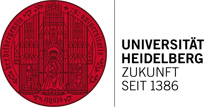New Research Training Group: Asymptotic Geometry
A new Research Training Group (RTG) comprised of mathematicians from Heidelberg University and the Karlsruhe Institute for Technology will be exploring special questions in the field of geometry. Following a successful international expert evaluation, the German Research Foundation (DFG) has awarded the "Asymptotic Invariants and Limits of Groups and Spaces" RTG funding in the amount of approximately four million euros for a period of four and a half years. The new training group for young researchers will take up its work in October 2016 with ten PhD candidates and two postdoctoral researchers. Ten additional PhD students and five post-docs will join the RTG as associate members. Prof. Dr. Roman Sauer (Karlsruhe) and Prof. Dr. Anna Wienhard (Heidelberg) will serve as spokespersons of the RTG.
The focus of the new Research Training Group is asymptotic geometry, which deals with the macroscopic properties of geometric spaces. When such spaces are observed from afar, the difference between a continuous space and its discrete convergence disappears. Asymptotic geometry thus permits the uniform study of continuous and discrete geometric structures. The interplay of various mathematical methods has special significance for this work. According to Prof. Wienhard, the main questions of research problems in this area often require an approach that crosses the boundaries of traditional mathematical disciplines. The RTG will combine Karlsruhe's expertise in geometric group theory and differential geometry and Heidelberg's expert knowledge in the theory of Lie groups and higher Teichmüller theory to build the first systematic and institutionalised doctoral training programme in asymptotic geometry as both spokespersons emphasise.
Through the RTG's qualification programme, the doctoral candidates will be trained in a broad range of methodologies in geometry and have the opportunity to delve into analytical, group theoretical, topological and differential geometric aspects. The group's members will also acquire the communication, presentation and networking skills that will later serve them well as effective leaders in science and industry. Prof. Wienhard and Prof. Sauer point out that the young researchers will also benefit from the RTG's cooperation with and links to centres of mathematics in France, Israel and the USA.

